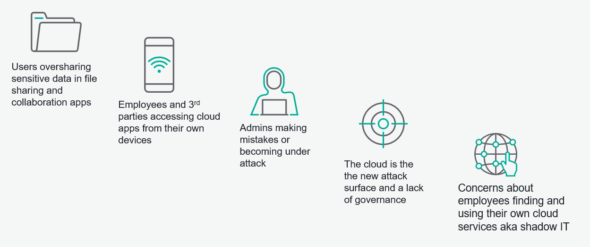
Forcepoint is a cybersecurity vendor, whereas Fujitsu offers information and communication technologies. As part of its managed security services programme, Fujitsu will now offer select Forcepoint security solutions to assist customers in securing their remote workforce. The services are available across the UK & Ireland, Iberia, Nordics and Benelux.
“It is human nature to seek workarounds, if IT protocols appear to compromise employee productivity or if solutions are not readily available to workers,” said David Barnett (pictured above), director of edge protection at Forcepoint. “People today are simply trying to get their jobs done in unusual circumstances, but this is resulting in unprecedented levels of shadow IT, for example a reported 45% increase in usage of communications apps in early 2020 alone.”
In recent months, businesses have been forced to rapidly adapt to remote work environments for their entire workforce. Enterprises must now administrate secure data access across a huge range of devices, some of which are shared, and all of which connect using device-busy home internet setups.
Shadow IT is not simply a question of control – regulatory compliance including GDPR can also be impacted. In addition, employee use of systems, devices, software and applications without IT department approval creates cybersecurity gaps which cybercriminals can capitalise on as entryways onto corporate networks.
Fujitsu offers a range of cloud security solutions from Forcepoint, enabling customers to transform their network and security architectures, simplify connectivity and unify security policy enforcement throughout their distributed application and network environments. Fujitsu’s CASB (Cloud Access Security Broker) Managed Security Service will provide customers round-the-clock support to enhance their cloud security defences through improved visibility, continuous monitoring and proactive control of activities that would otherwise expose sensitive data within cloud environments.
The Fujitsu CASB Managed Security Service, powered by Forcepoint, allows organisations to several things. These include the ability to: uncover and rate cloud apps, identify over exposed data and risky users, classify and protect data, ensure compliance & data privacy, and to remediate incidents.
Barnett added, “The balance of security and productivity is difficult for businesses, as they navigate keeping critical data safe while enabling employees to innovate and use the tools that work best for them. In today’s cloud-based world, IT teams need to develop new methods and tools to manage these risks without limiting employee experience.”
Below: a Forecepoint illustration of the security risks inherent in the modern enterprise.

